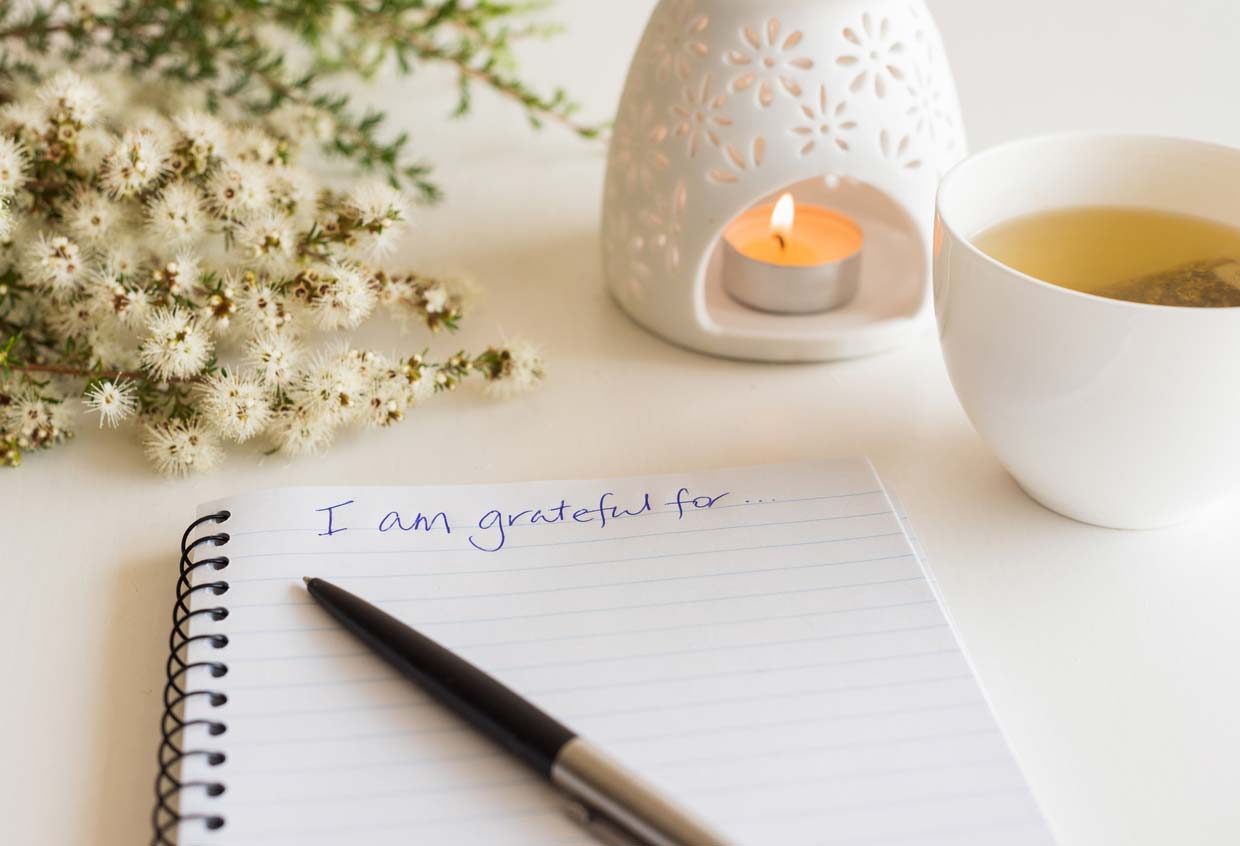Gratitude, by definition, is a thankful appreciation or recognition of something that’s
been done for us, either by a person, by life itself, or perceived from a higher power. As Robert Emmons, UC Davis professor of psychology and gratitude researcher, explained in a 2013 study, “Gratitude has a dual meaning: a worldly one and a transcendent one.” It can be an act when we give thanks. But it’s also a feeling of being grateful for that which you have.An Ounce of Gratitude Is Worth a Pound of Cure
And, as it turns out, practicing gratitude can make you happier and healthier. An overwhelming body of research indicates you’re going to experience more joy, vitality, and inner peace if you notice whatever blessings are in your life, and give thanks when you experience them.
And gratitude doesn’t just make things feel better – it can also make them get better. Gratitude is good for your physical, emotional, and mental health. “The practice of gratitude can have dramatic and lasting effects in a person’s life,” explains Dr. Emmons.
People who express more gratitude have:
- Fewer headaches, gastrointestinal difficulties, and respiratory infections — and better sleep.
- Improved mental health and happiness.
- Reduced stress and cortisol levels during pregnancy.
- Better health outcomes for people with chronic diseases like heart disease.
- Less emotional exhaustion, more happiness, and better work-life balance.
Can Practicing Gratitude Really Change Your Life?

When I heard all of this, I was skeptical. What if people who are fortunate, or who are particularly healthy, just feel more grateful? Does gratitude really change your life, or is it just a byproduct?
The answer surprised me, and it may surprise you, too.
In a study conducted by Dr. Emmons and his colleague Mike McCullough, of the University of Miami, randomly assigned participants were given one of three tasks. Each week, participants kept a short journal. One group briefly described five things they were grateful for that had occurred in the past week, another five recorded daily hassles from the previous week that displeased them, and the neutral group was asked to list five events or circumstances that affected them, but they were not told whether to focus on the positive or on the negative.
Keep in mind that these groups were randomly assigned and that nothing about their lives was inherently different, other than the journaling they were doing.
The types of things people listed in the grateful group included: “Sunset through the clouds;” “the chance to be alive;” and “the generosity of friends.”
And in the hassles group, people listed familiar things like: “Taxes;” “hard to find parking;” and “burned my dinner.”
After ten weeks, participants in the gratitude group reported feeling better about their lives as a whole and were a full 25% happier than the hassled group. They reported fewer health complaints. And, they were now exercising an average of one and a half hours more per week.
In a later study by Emmons, people were asked to write every day about things for which they were grateful. Not surprisingly, this daily practice led to greater increases in gratitude than did the weekly journaling in the first study. But the results showed another benefit: Participants in the gratitude group also reported offering others more emotional support or help with a personal problem, indicating that the gratitude exercise increased their goodwill towards others, or more technically, their “prosocial” motivation.
What’s The Brain Science Behind All of This?
Neuropsychologist Rick Hanson puts it this way: “The neurons that fire together, wire together… The longer the neurons [brain cells] fire, the more of them that fire, and the more intensely they fire, the more they’re going to wire that inner strength –- that happiness, gratitude, feeling confident, feeling successful, feeling loved and lovable.”
And what’s going on in the brain leads to changes in behavior. Grateful people tend to take better care of themselves and to engage in more protective health behaviors, like regular exercise and a healthy diet. They’re also found to have lower levels of stress. And lowered levels of stress are linked to increased immune function and to decreased rates of cancer and heart disease.
So it seems, you take better care of what you appreciate. And that also extends to your body and the people around you.
Good for Your Relationships

Not only does saying “thank you” constitute good manners, but showing appreciation can also help you win new friends, according to a 2014 study published in Emotion.
The study found that thanking a new acquaintance makes them more likely to seek an ongoing relationship. So whether you thank a stranger for holding the door, or you send a quick thank-you note to that co-worker who helped you with a project, acknowledging other people’s contributions, can lead to new opportunities.
Practicing gratitude can even help you deal with feelings of envy. In a 2018 study conducted by researchers at Hunan Normal University and The Chinese University of Hong Kong, gratitude was found to be positively associated with benign envy and negatively associated with malicious envy. In other words, when interacting with someone who has something that you don’t, gratitude helps to lift you up instead of making you want to pull the other person down.
But What About Tough Times?

As I was learning about this research, I was still a bit skeptical. Life can at times be brutal. Sometimes just surviving can feel like an accomplishment. Can you really feel grateful in times of loss?
Yes, you can.
In fact, findings show that adversity can actually boost gratitude. In a Web-based survey tracking the personal strengths of more than 3,000 American respondents, researchers noted an immediate surge in feelings of gratitude after September 11, 2001.
Tough times can actually deepen gratefulness if we allow them to show us not to take things for granted. Dr. Emmons reminds us that the first Thanksgiving took place after nearly half the pilgrims died from a rough winter and year. It became a national holiday in 1863 in the middle of the Civil War and was moved to its current date in the 1930s following the Depression.
Why would a tragic event provoke gratitude? When times are good, we tend to take for granted the very things that deserve our gratitude. In times of uncertainty, though, we often realize that the people and circumstances we’ve come to take for granted are actually of immense value to our lives.
Emmons writes: “In the face of demoralization, gratitude has the power to energize. In the face of brokenness, gratitude has the power to heal. In the face of despair, gratitude has the power to bring hope. In other words, gratitude can help us cope with hard times.”
In good times, and in tough times, gratitude turns out to be one of the most powerful choices you can make.
Putting Gratitude to Work for You

If you want to put all this into practice, here are some simple things you can do to build positive momentum:
- Say Grace: This Thanksgiving, or anytime you sit down to a meal with loved ones, take a moment to go around and invite everyone to say one thing they are grateful for. Even if you eat a meal alone, you can take a moment to give thanks.
- Keep a Daily Gratitude Journal: This really does work as was seen in Dr. Emmons’ study, and more recent studies like this 2017 one that showed improved biomarkers in patients with heart failure. And yes, there’s also an app for that.
- Share The Love: Make it a practice to tell a spouse, partner, or friend something you appreciate about them every day.
- Remember Mortality: You never know how long you, or anyone you love, will be alive. How would you treat your loved ones if you kept in mind that this could be the last time you’d ever see them?






Комментариев нет:
Отправить комментарий